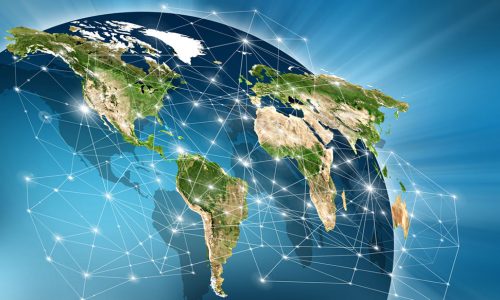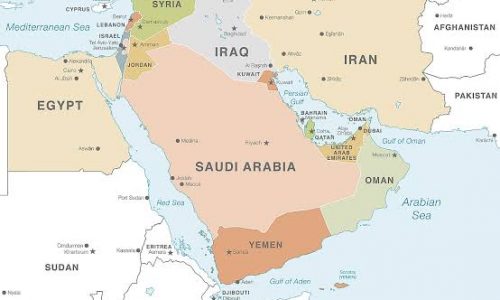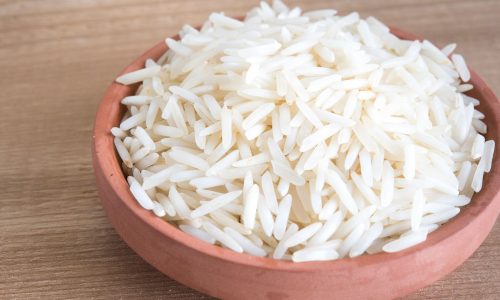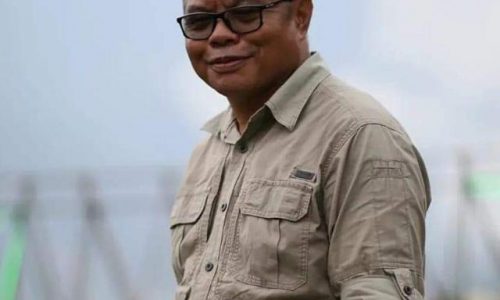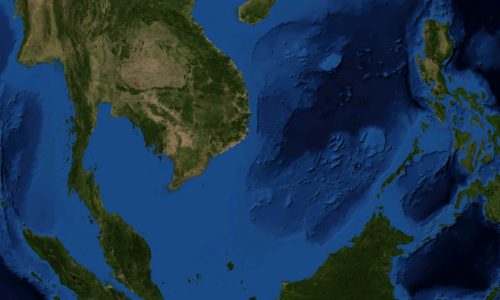Prologue
Geopolitics is the implementation of a bargaining position policy in international relations related to the geographical position of a country or a region. Geopolitics is manifested in policies and applications in the fields of economy, politics, foreign relations, military power and others. Geopolitics – etymologically – is a combination of geo (geography, something static) with politics (something dynamic). Thus, understanding geopolitics cannot be separated from the dynamics and perspectives as well as the inter-relationships and interactions between the actors in it.
Geopolitical evolution
In welcoming the 57th anniversary of the Lemhannas (National Resilience Institute) – as a geopolitical school – coincided with the national awakening day on May 20, 2022, Lemhannas Governor Andi Widjajanto gave a scientific oration entitled “Geo V”, on historical evolution, academics and the battle of issues strategically at each stage. Bottom line geopolitics is a hegemonic struggle for control of global resources with certain strategies. This geopolitical view is summarized as follows.
The first stage of geopolitics was marked by the rise of nation-state nationalism in Europe. The thinkers of this era included Ratzel (1897) and Kjellen (1917) who made an analogy with the state as an organism that requires expansion of living space (lebensraum). This understanding developed during the Napoleonic wars until the first world war. Some of the existing streams are the concept of heartland – rimland. This is implemented with the control of the heart of the land (Mackinder, 1904), the control of the sea (Mahan, 1890).
The second stage of geopolitics is characterized by a conflict of interests between advanced industries to market their products. A country that is getting stronger and bigger requires a wider space and area of influence. Germany under Haushoffer (1941) implemented by extending hegemony in the heart of Europe to North Africa. Spykman (1944) directs geographic control with the concept of maritime control. Maritime control allows penetration to the rimland. The concept of aerospace mastery was developed by De Seversky (2014). Control over air space is believed to be a mobility force that increases a country’s military superiority.
The third stage of geopolitics – supported by Henry Kissinger (1994) – was centered on the containment policy against the Soviet Union and its Eastern allies, against the West led by the United States, which was marked by the cold war. Slater (2004), Taylor (1979) and Nyerere (1983) with a universalistic pragmatic approach offer different views. According to them, what is happening is a new style of imperialism, where the industrialized countries (the north) dominate and dictate the economic and political movements of the developing countries (the south).
Stage four of geopolitics is a battle for resources. Natural resource-owning countries that are not accompanied by the capacity to manage supply chains and production chains will fall into systemic vulnerability (Le Billon, 2005). Oil, gas, coal and strategic mineral resources are the focus. Klare (2002) says that military titles are no longer based on ideological struggles, but have been transformed into supply chain security projections, production to marketing.
Stage five geopolitics analyzes the linkages between resources, supply chains and infrastructure. Territorial conflicts shift to connectivity conflicts (connectography, Khanna, 2016). Its current form can be seen in the competition between the PRC axis and the US axis in the Pacific arena. China with the Belt and Road Initiative (BRI) tries to play a global role with a strategy of infrastructure connectivity in Asia-Pacific to Africa on the sea route, and through Central Asia to Europe on the land track. Investment cooperation, logistics, and financing that are interconnected with policies in all partner countries and international organizations can be seen as strengthening or binding geopolitical influence.
This PRC policy was challenged by the US, with the jargon of Free and Open Indo Pacific (FOIP). The US and its main allies of Australia, Japan and India tried to stymie the PRC’s influence. The four countries, commonly known as QUAD, also have strategic partners with South Korea, Taiwan and other countries in the region. US President Joe Biden’s first state visit to South Korea and Japan is a sign of both strengthening the alliance and the resistance. Australia’s newly elected Prime Minister from the Labor Party used his first trip to Tokyo to meet individually and individually with each of the QUAD leaders.
Indonesia also views the importance of marine waterway connectivity as a source of bargaining power. President Joko Widodo in his first term of government introduced and promoted the World Maritime Axis policy. Infrastructure development, sea highways, ports, and optical communication support (space highways) are part of the implementation.
VUCA and BANI
VUCA which stands for Volatility (turbulence), Uncertainty (uncertainty), Complexity (complexity) and Ambiguity (twoness) was originally a leadership theory expressed by Bennis and Nanus (1985). VUCA was adopted by military schools in the US and other parts of the world in predicting the behavior of political and military actors in shaping, responding, anticipating, intervening, orchestrating or even allowing certain situations in certain areas or situations. In short, VUCA is the art of predicting and responding to uncertainty.
Is contemporary classical geopolitics still relevant?
War in a country is no longer strictly following alliances or political alliances. The occurrence of a pandemic outbreak is also a touchstone for geopolitical alliance preferences that are no longer followed rigidly. The following phenomena and events, in the context of policy relations and interactions between nations, show that classical geopolitics is less or less relevant.
For example, the civil war in Syria. The civil war that has erupted since March 2011 with its various intensities and dynamics, is not easy to draw a common thread between allied and opposing parties. On the stronghold of President Bashar al-Assad’s government are Hezbollah, Iran, Russia and Iraq. The Syrian National Coalition has received support from Turkey and funding from the US. In the stronghold of the Islamic State led by Abu Al-Hasan al-Hashimi al-Quraish, there are a number of organizations that oppose the al-Assad government. But it is not clear whether this group is in or has the backing of the US. In the group of fighters for the autonomous administration of East and North Syria, the core is the ethnic Kurdish, Arab and Assyrian fighters.
Countries that support the government of al-Assad such as Iran or Iraq or those that support the Syrian National Coalition such as Turkey, need to be counted. The rise of the struggle for autonomous administrations can be a trigger or trigger for rebellions in their countries, where the Kurdish opposition has very broad aspirations for independence, separatism or autonomy. The Kurds have a cultural identity, language and heritage of historical pride in the past, including having a victorious dynasty. Salahuddin Ayyubi (Sultan Saladin) who managed to conquer Jerusalem in the twelfth-century crusades, for example, is a Kurdish person. The Kurdistan Region, including its people, is currently divided at the border points of Turkey, Syria, Iran and Iraq. Its population is about 23 million people, in an area of 360 thousand square kilometers, or about twice the size of Syria. In the countries mentioned above the Kurds are generally the second largest ethnic group.
In Russia’s war in Ukraine, Sweden and Finland, previously neutral countries, volunteered to join NATO. On the plan to join the two Scandinavian countries, Turkey expressed a strong protest, because these two countries are considered to provide protection and facilitation to Kurdish separatist fighters. Germany, France, Poland and Hungary also did not wholeheartedly support the proposals for tougher economic sanctions by Britain and the US against Russia, because they are associated with high energy dependence. Once again this shows that geopolitics is intertwined with geoeconomic interests.
The occurrence of the COVID-19 pandemic that has hit the world for more than two years has brought disruption in almost all fields, especially those related to food commodities, medical equipment and basic energy. The pandemic penetrated and crossed geographical, ideological and military-political alliances. At the beginning of the pandemic, for example, the PRC was more active in helping Western European countries than the US.
By looking at the things stated above, basically, the political policy choices of a country are no longer tightly bound to the geographical location of a country. Returning to the point of this paper is the classical – contemporary geopolitical concept that links a country’s foreign policy choices in relation to the geographical position of other countries, in this dynamic, disruptive and deceptive era that is still relevant.
Jakarta, May 2022
The writer is Defense University Alumni, majoring in Energy Geostrategy, and National Resilience Institute (Lemhanas) Alumni



